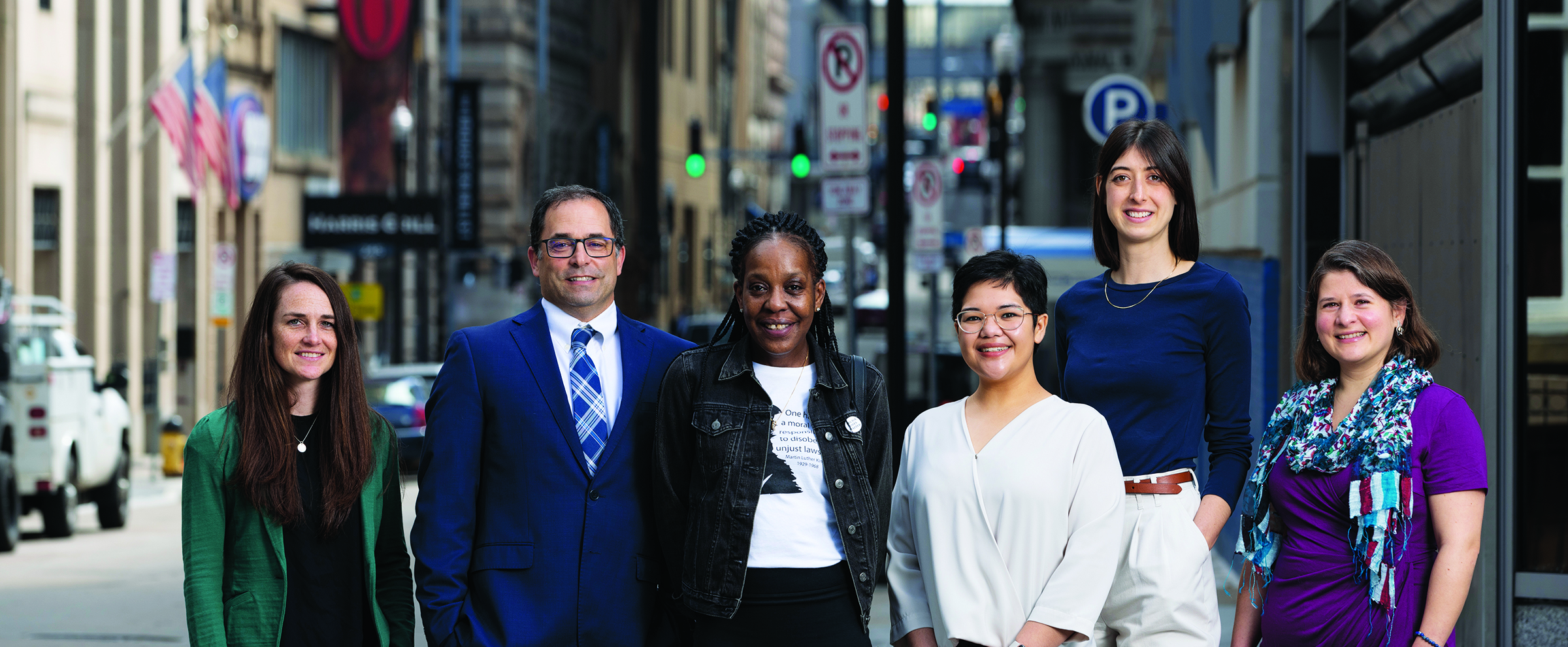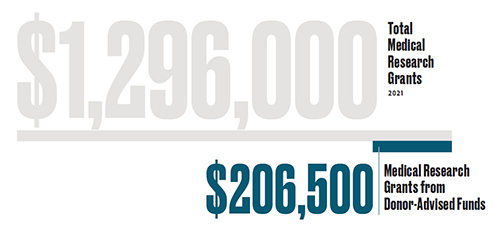Investing for healthy communities

Call it enlightenment, as much as transformation. For when The Pittsburgh Foundation’s staff and Board looked back on 70 years of medical research funding, they realized that many long -standing health care disparities by race and low economic status had not been addressed. In fact, the Foundation’s emergency response to COVID-19 brought fresh evidence of health inequities.
That sobering review last year prompted the Board to establish a Public Health department with a high-bar goal of eliminating disparities.
Public health is a priority area in the Foundation’s overall effort to address disparities in many aspects of daily life. But the department will be taking on other significant responsibilities, including management of 18 medical research funds, which are directed toward disease prevention and cures.
Public Health department staff will work with community, organization, funder and institutional partners to address the underlying causes of health disparities through grantmaking, research and strategic convenings.
These efforts will address disparities in access to physical and mental health care, support a healthy and safe environment, and be responsive to emergent issues of public health in the region. Michael Yonas, the Foundation’s vice president of Public Health, Research and Learning, says his team will focus on problems affecting social determinants of health, including environmental risks, gun violence, youth justice reform, housing insecurity and uninsured/ underinsured adults and children.
The pandemic, as well as broader social demands in recent years, spotlighted the intensity and gravity of health care disparities, says Yonas.
COVID-19 underscored the urgency to enact equitable public health measures, as the virus disproportionately affected Black, Indigenous and People of Color (BIPOC) communities as well as residents in economically struggling neighborhoods. Foundation staff saw firsthand the needs of community members and the nonprofit organizations that serve them when Allegheny County officials tapped them to distribute $1.62 million of the federal government’s CARES Act funds designated for COVID response.
That the county chose the Foundation to allocate the CARES money was a recognition of its strong relationships with small Black- and Brown-led community-based organizations. Those will continue to be crucial as the Foundation ramps up its public health work. “Data alone does not solve these problems,’’ says Yonas. “The relationships the Foundation has established will be an excellent resource.”

The ultimate goal, he says, in employing extensive regional connections, resources and expertise “is to help communities not just survive, but to thrive.”
In addition to relying on relationships, the team stands on a solid underpinning of grant-making experience. For more than a decade, the Foundation’s medical funds have helped finance research across a broad spectrum of diseases, including cancer, Alzheimer’s, arthritis, diabetes, heart ailments and blindness. The portfolio represents Foundation donors’ long-standing support of exceptional medical research that often leads to significant public health benefits in the Pittsburgh region. One example: a two-year, $150,000 research grant awarded late last year to analyze risks of adolescent substance use.
Eliminating persistent health disparities is a formidable goal, but Yonas says the Foundation can make a difference by “using a community-engaged, public health approach in collaboration with other foundation, public- and private-sector partners.”

Studying Disparities in Alcohol TreatmentAs The Pittsburgh Foundation’s Public Health department moves into full operation after its launch last year, it will already have in its portfolio Last year, the Foundation approved a two-year, $150,000 grant through its medical research funds to the University of Pittsburgh to help establish a Regional Alcohol Research Center. The center partners with community members to conduct innovative research. Lead researchers at Pitt, Brooke Molina, professor of psychiatry, psychology and pediatrics, and Sarah Pedersen, associate professor of psychiatry and psychology, will focus on structural factors and other issues that contribute to health inequities in alcoholism treatment for individuals in their 20s and 30s. “Exposure to stress arising from structural and interpersonal discrimination can drive people to use alcohol as a coping mechanism,” says Molina, “and over time, it becomes increasingly difficult to control.” In addition to improving personalized treatments for alcoholism, Pedersen wants the center to “inform public policy to greatly reduce health inequities.’’ |
Original story appeared in the 2021 Report to the Community. | See archive of print publications.



